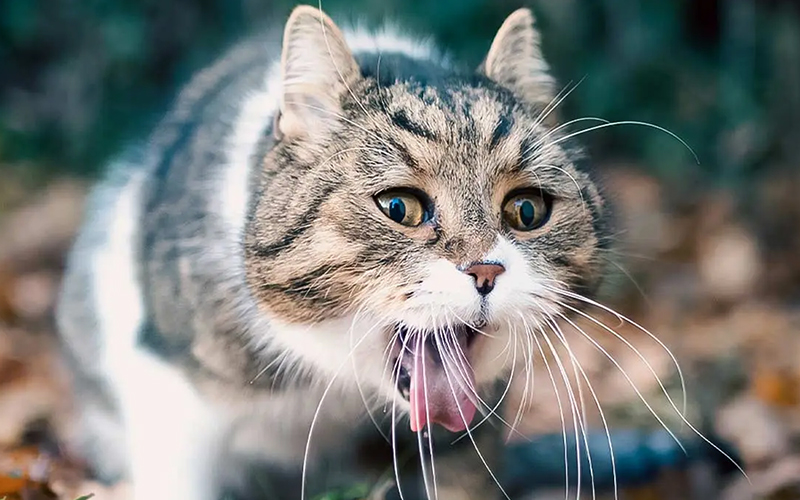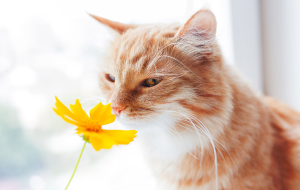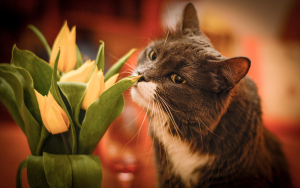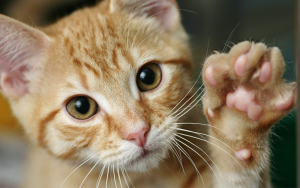Why Does My Cat Keep Throwing Up? Understanding the Causes and Solutions for Your Feline’s Vomiting Problem

As a cat owner, it can be alarming to find your feline friend vomiting frequently. While occasional vomiting can be relatively normal, persistent or recurrent vomiting could indicate a serious underlying health issue. If you’re wondering why your cat
keeps throwing up, you’re not alone. Many pet owners face this dilemma, and understanding the causes behind it is crucial for providing the best care for your furry companion. In this article, we will explore the various reasons why your cat might
be vomiting, how to recognize the signs of a health problem, and what steps you can take to help your cat feel better.
1. Occasional Vomiting in Cats: Is It Normal?
Before diving into the possible causes, it’s important to acknowledge that vomiting in cats can sometimes be normal. Cats, particularly those that are young or have certain behaviors, may vomit occasionally without it necessarily being a sign of illness.
For example:
- Hairballs: Cats, especially long-haired breeds, groom themselves constantly, ingesting hair in the process. This hair can accumulate in the stomach, leading to vomiting as the cat tries to expel it.
- Eating Too Quickly: Some cats eat their food too fast, which can cause them to regurgitate. This is often more common in cats with high energy levels or those in multi-pet households.
While occasional vomiting due to these factors is usually nothing to worry about, it’s important to monitor your cat’s health. If vomiting becomes more frequent or is accompanied by other symptoms, it may be a sign of a more serious condition.
2. Common Causes of Frequent Vomiting in Cats
If your cat is vomiting regularly, it’s essential to identify the potential cause. There are many possible reasons for a cat to vomit more than once or twice, ranging from dietary issues to serious medical conditions. Below are some of the most common
causes:
2.1 Gastrointestinal Problems
-
Food Sensitivities or Allergies: Some cats have food sensitivities or allergies that can lead to vomiting. Certain ingredients, such as grains, dairy, or artificial additives, may trigger a gastrointestinal reaction. Switching
to a hypoallergenic or specialized diet may help.
-
Inflammatory Bowel Disease (IBD): IBD is a chronic condition in which the digestive tract becomes inflamed. This inflammation can lead to vomiting, diarrhea, weight loss, and loss of appetite. Cats with IBD often vomit undigested
food or bile.
-
Gastritis: Inflammation of the stomach lining, known as gastritis, can cause vomiting. This condition may be caused by infections, parasites, or the ingestion of irritating substances like spoiled food or chemicals.
2.2 Hairballs
Hairballs are a common reason for vomiting, especially in cats with long or dense coats. When cats groom themselves, they ingest hair, which can form into hairballs in the stomach. If these hairballs are not expelled naturally, they can cause the cat
to vomit. Regular brushing can help reduce hairball formation and prevent this from becoming a frequent issue.
2.3 Parasites
Intestinal parasites such as roundworms, hookworms, and tapeworms can cause vomiting in cats. These parasites can irritate the stomach and intestines, leading to vomiting, diarrhea, and weight loss. If your cat is vomiting and showing signs of lethargy
or poor coat condition, it may be worth checking for parasites. Deworming treatments prescribed by your vet can help eliminate the problem.
2.4 Toxins and Poisoning
Exposure to toxins or harmful substances is another common cause of vomiting in cats. Cats are curious by nature and may ingest household chemicals, plants, or human foods that are toxic to them. Common toxic substances include:
- Chocolate
- Onions and garlic
- Alcohol
- Household cleaners and pesticides
- Certain houseplants like lilies, azaleas, and poinsettias
If you suspect your cat has ingested something toxic, seek veterinary care immediately. Prompt treatment can help prevent severe poisoning and other serious complications.
2.5 Diseases of the Liver or Kidneys
Chronic vomiting can sometimes be a sign of liver or kidney disease in cats. Conditions such as hepatic lipidosis (fatty liver disease), kidney failure, or other hepatic or renal disorders may result in vomiting as a symptom. These diseases often require
a veterinary diagnosis and management to treat effectively.
-
Liver disease: The liver processes toxins and wastes in the body, and when it’s not functioning properly, it can cause vomiting, lethargy, and jaundice (yellowing of the skin and eyes).
-
Kidney disease: Chronic kidney disease (CKD) is common in older cats and can lead to vomiting as waste products build up in the bloodstream due to kidney dysfunction.
2.6 Pancreatitis
Pancreatitis, or inflammation of the pancreas, is another condition that can cause vomiting in cats. It is often associated with decreased appetite, lethargy, and abdominal pain. Pancreatitis can be triggered by dietary indiscretion, infections, or underlying
diseases. Treatment typically involves hospitalization and supportive care, including fluids and medications.
2.7 Foreign Bodies and Obstructions
Sometimes, cats may swallow non-food items such as string, rubber bands, or small toys. These foreign bodies can get stuck in the digestive tract, causing a blockage. Vomiting is a common symptom of gastrointestinal obstruction. If your cat is vomiting
and you suspect they may have ingested a foreign object, seek veterinary care immediately, as surgery may be necessary to remove the obstruction.
2.8 Feline Hyperthyroidism
Hyperthyroidism is a common condition in older cats, where the thyroid glands produce excessive amounts of thyroid hormone. This leads to symptoms such as weight loss, increased appetite, and vomiting. Hyperthyroidism can be managed with medication, surgery,
or radioactive iodine treatment.
3. When to See the Vet
If your cat is vomiting frequently, it’s important to take the situation seriously. While occasional vomiting may not be a cause for concern, persistent or severe vomiting can be a sign of a more serious underlying health issue. It’s time to consult your
veterinarian if:
- The vomiting occurs more than once or twice a week.
- Vomiting is accompanied by other symptoms like lethargy, diarrhea, loss of appetite, or weight loss.
- Your cat is vomiting bile or blood.
- The vomiting is preventing your cat from keeping food or water down.
- Your cat has a known health condition (e.g., kidney disease, hyperthyroidism, etc.) and shows worsening symptoms.
A veterinarian will perform a thorough examination, possibly including blood tests, ultrasound, x-rays, or endoscopy, to determine the cause of the vomiting and recommend appropriate treatment.
4. How to Help Your Cat at Home
While you should always consult your vet if your cat’s vomiting becomes frequent, there are a few steps you can take at home to reduce the risk of vomiting:
- Feed smaller meals more often: Some cats are prone to vomiting after eating large meals. Try feeding your cat smaller meals throughout the day instead of one or two large ones.
- Switch to a high-quality diet: Consider switching to a high-quality, easily digestible diet that’s appropriate for your cat’s age and health needs. Look for foods that contain high-quality proteins and avoid artificial additives.
- Keep your cat hydrated: Vomiting can lead to dehydration, so make sure your cat always has access to fresh water. You can also try offering wet food, which contains more moisture.
- Brush your cat regularly: Regular brushing can help reduce hairballs, particularly in long-haired breeds. This can minimize the chances of hairballs causing vomiting.
5. Conclusion
Frequent vomiting in cats can be caused by a wide range of issues, from benign causes like hairballs to more serious conditions like kidney disease or pancreatitis. Understanding the potential reasons behind your cat’s vomiting and consulting a veterinarian
for a proper diagnosis is essential for ensuring your pet’s health and well-being. With the right care and treatment, most vomiting issues can be managed, allowing your cat to lead a long, happy life. Always prioritize your cat’s health, and don’t
hesitate to seek professional help if needed.







